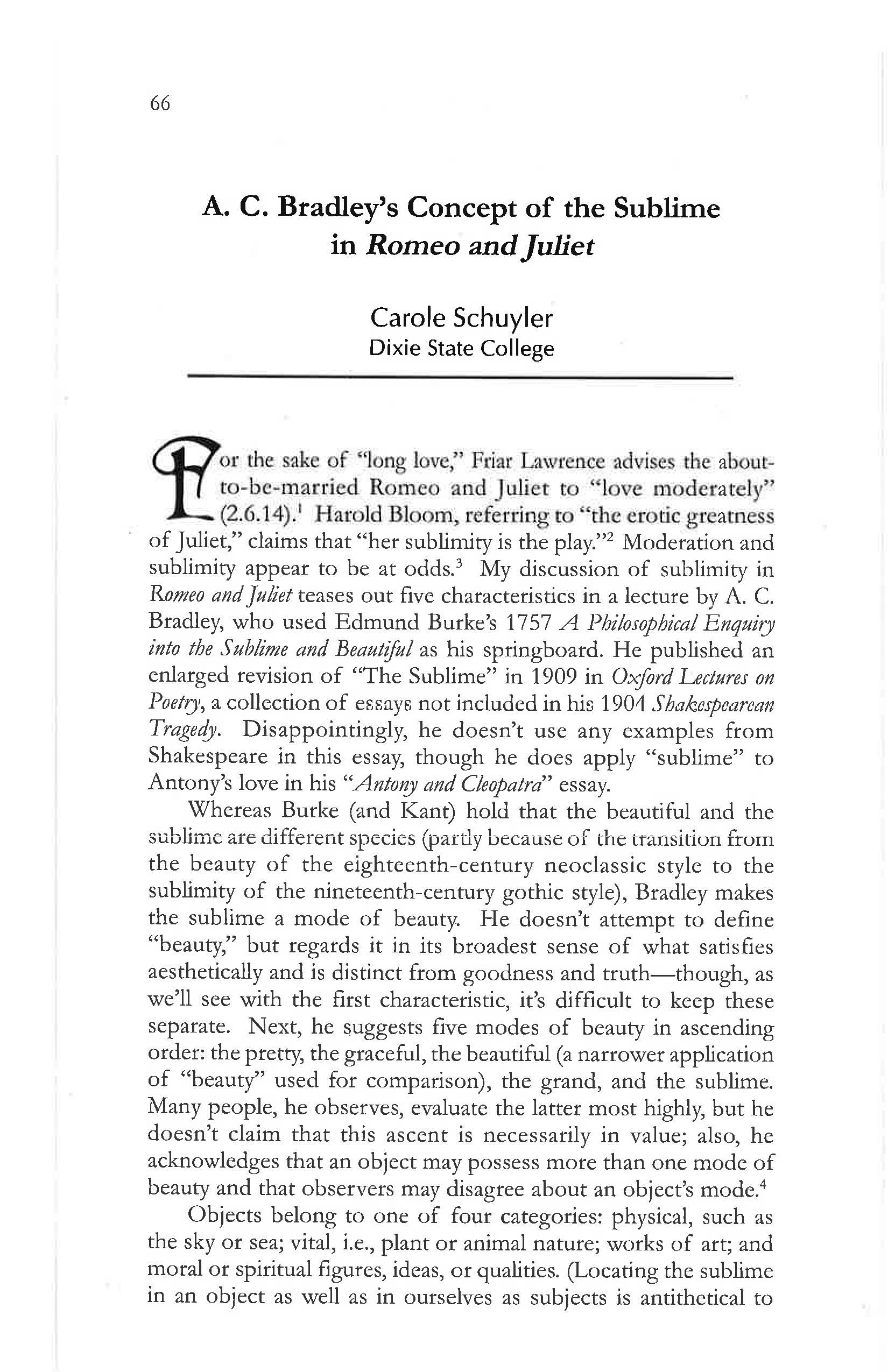A. C. Bradley's Concept of the Sublime in Romeo and Juliet
Main Article Content
Abstract
For the sake of “long love,” Friar Lawrence advises the about-to-be-married Romeo and Juliet to “love moderately” (2.6.14).1 Harold Bloom, referring to “the erotic greatness of Juliet,” claims that “her sublimity is the play.”2 Moderation and sublimity appear to be at odds.3 My discussion of sublimity in Romeo and Juliet teases out five characteristics in a lecture by A.C. Bradley, who used Edmund Burke’s 1757 A Philosophical Enquiry into the Sublime and Beautiful as his springboard. He published an enlarged revision of “The Sublime” in 1909 in Oxford Lectures on Poetry, a collection of essays not included in his 1901 Shakespearean Tragedy. Disappointingly, he doesn’t use any examples from Shakespeare in this essay, though he does apply “sublime” to Antony’s love in his ”Antony and Cleopatra” essay.
